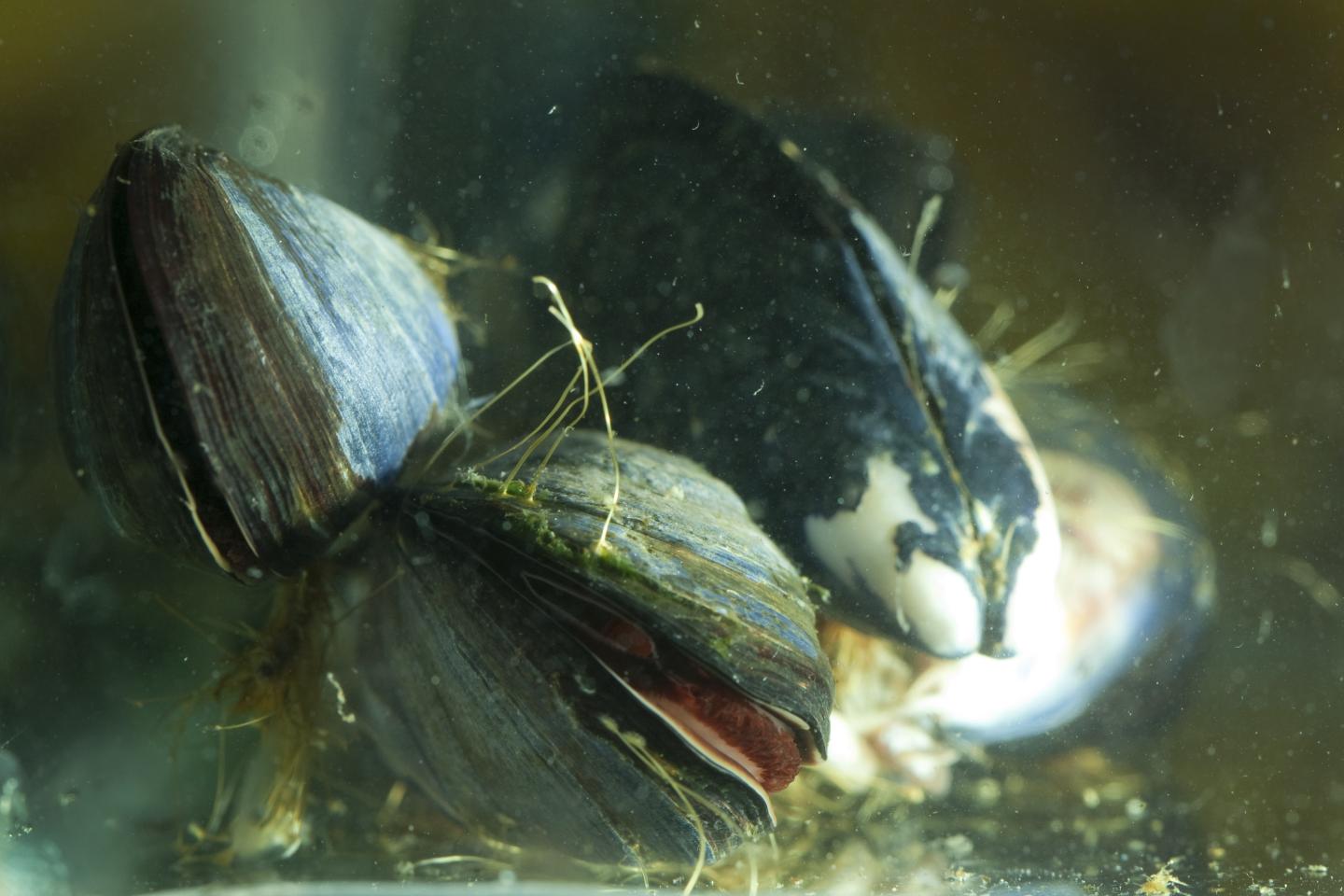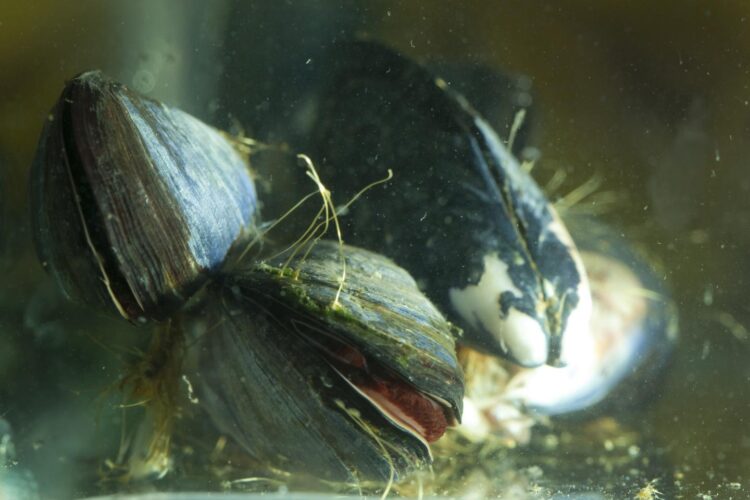
Credit: University of Plymouth
The increased temperature and acidification of our oceans over the next century have been argued to cause significant physical changes in an economically important marine species.
Scientists from the University of Plymouth exposed blue mussels (Mytilus edulis) to current and future levels of ocean acidification (OA) or warming (W), as well as both together – commonly known as OAW.
Initial comparison of mussel shells showed that warming alone led to increased shell growth, but increasing warming and acidification led to decreased shell growth indicating that OA was dissolving their shells.
However, analysis using cutting edge electron microscopy of the shell crystal matrix or ‘ultrastructure’ revealed that, in fact, warming alone has the potential to significantly alter the physical properties of the mussels’ shells, whereas acidification mitigated some of the negative effects.
Mussels grown under warming exhibited changes in their crystal structures including a propensity for increased brittleness, which would place mussels under greater threat from their many predators including crabs and starfish.
These negative effects were to some degree mitigated under acidified conditions with mussel shells showing evidence of repair, even though their crystals grew differently to the norm.
The study, published in a Frontiers of Marine Science special issue titled Global Change and the Future Ocean, is the latest research by the University into the potential effects of ocean warming and acidification on marine species.
Previous projects have suggested future conditions could significantly reduce the nutritional qualities of oysters as well as dissolving the shells of sea snails and reducing their overall size by around a third.
Dr Antony Knights, Associate Professor in Marine Ecology and the study’s lead author, said: “By the end of the century, we are predicted to see increases in sea surface temperature of 2-4°C and at least a doubling of atmospheric CO2. It is no surprise that would have an effect on marine species, but this research is surprising in that acidification appears to mitigate changes in shell structure attributable to rising sea temperatures, which is counter to what we would have predicted. It may be that increased CO2 in the water is providing more ‘raw material’ for the mussels to repair their shells that is not available under just warming conditions.”
Dr Natasha Stephen, Director of Plymouth Electron Microscopy Centre, added: “Until now, there have been relatively few studies assessing the combined effects of ocean acidification and warming on shell structures. However, understanding the changes that might result at a microscopic level may provide important insights in to how organisms will respond to future climate change. This study shows it can certainly have negative effects but also that they are not always predictable, which presents some serious challenges when it comes to trying to disentangle the consequences of climate change.”
###
Media Contact
Alan Williams
[email protected]
Original Source
https:/
Related Journal Article
http://dx.





